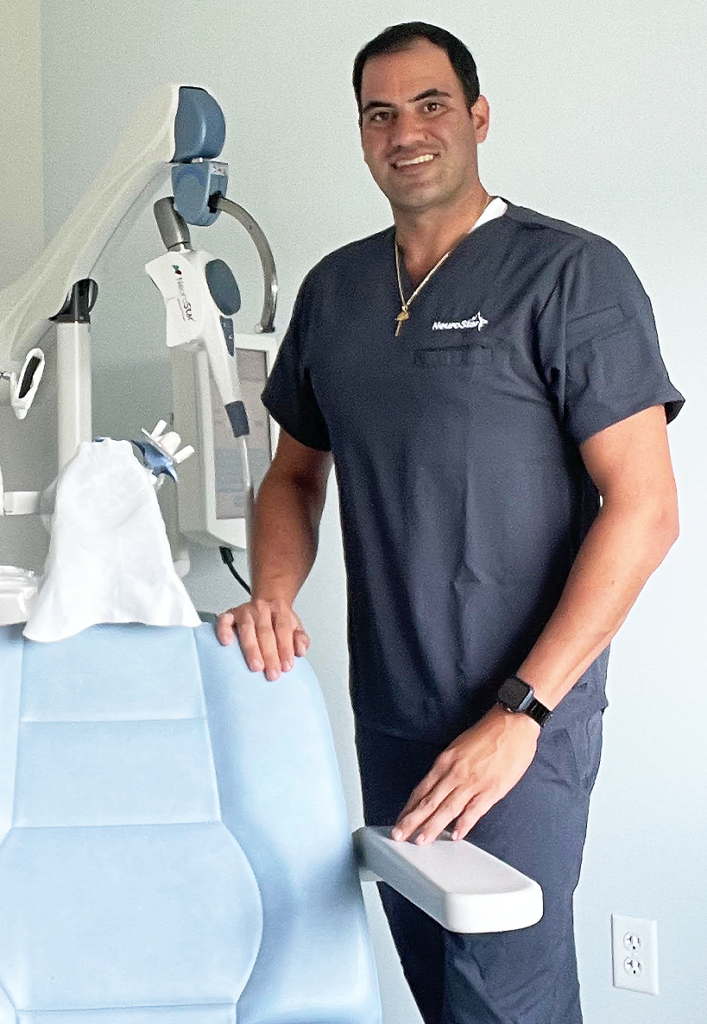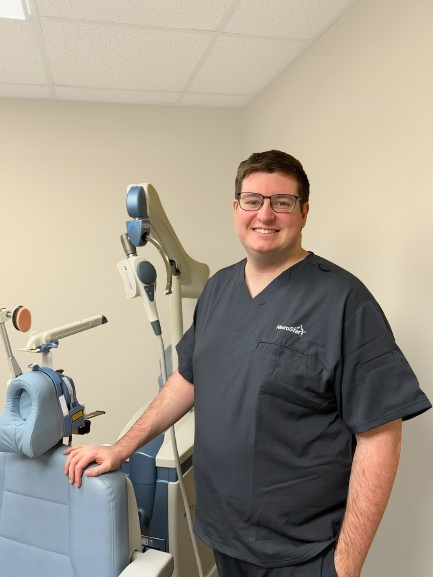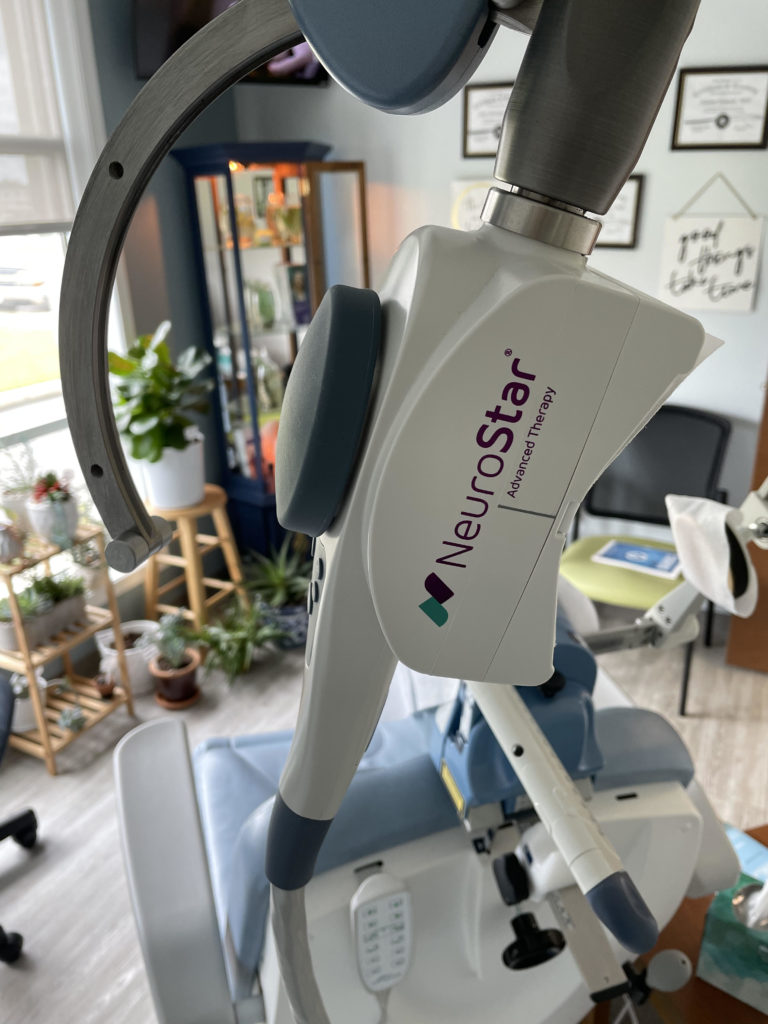NeuroStar TMS
Information from the National Institute of Mental Health
TMS -Transcranial Magnetic Stimulation
FDA cleared
Effective non- drug therapy for depression
Repetitive transcranial magnetic stimulation (rTMS) uses a magnet instead of an electrical current to activate the brain. First developed in 1985, rTMS has been studied as a possible treatment for depression, psychosis and other disorders since the mid-1990’s.
Clinical trials studying the effectiveness of rTMS reveal mixed results. When compared to a placebo or inactive (sham) treatment, some studies have found that rTMS is more effective in treating patients with major depression. But other studies have found no difference in response compared to inactive treatment.



How does it work?
Unlike ECT, in which electrical stimulation is more generalized, rTMS can be targeted to a specific site in the brain. Scientists believe that focusing on a specific spot in the brain reduces the chance for the type of side effects that are associated with ECT. But opinions vary as to what spot is best.
A typical rTMS session lasts 19 to 30 minutes and does not require anesthesia. An electromagnetic coil is held against the forehead near an area of the brain that is thought to be involved in mood regulation. Then, short electromagnetic pulses are administered through the coil. The magnetic pulse easily passes through the skull, and causes small electrical currents that stimulate nerve cells in the targeted brain region. And because this type of pulse generally does not reach further than two inches into the brain, scientists can select which parts of the brain will be affected and which will not be. The magnetic field is about the same strength as that of a magnetic resonance imaging (MRI) scan. Generally, the person will feel a slight knocking or tapping on the head as the pulses are administered.
Not all scientists agree on the best way to position the magnet on the patient’s head or give the electromagnetic pulses. They also do not yet know if rTMS works best when given as a single treatment or combined with medication. More research, including a large NIMH-funded trial, is underway to determine the safest and most effective use of rTMS.
Here’s what you can expect from a NeuroStar Advanced Therapy (TMS) session
Before Treatment
You’ll recline comfortably in the treatment chair. A small, curved magnetic coil will be
positioned lightly on your head.
During Treatment
NeuroStar delivers focused magnetic stimulation directly to the target areas of the brain.
You’ll hear a clicking sound and feel a tapping sensation on your head.
After Treatment
NeuroStar Advanced Therapy: Depending on your doctor’s recommendation,
each treatment takes 19 minutes.
You can resume normal activities immediately.
Because there are no effects on alertness or memory, you can drive yourself to and from
treatment sessions.
In-office treatment with NeuroStar TMS Therapy typically takes 19-37 minutes
and is administered 5 days a week for approximately 4-6 weeks.*
Service areas
Dothan, AL, Enterprise, AL, Ozark, AL, Abbeville, AL, Fort Rucker, AL, Slocomb, AL, Geneva, AL, Troy, AL


141 Scouting Cir, Troy, AL 36081

